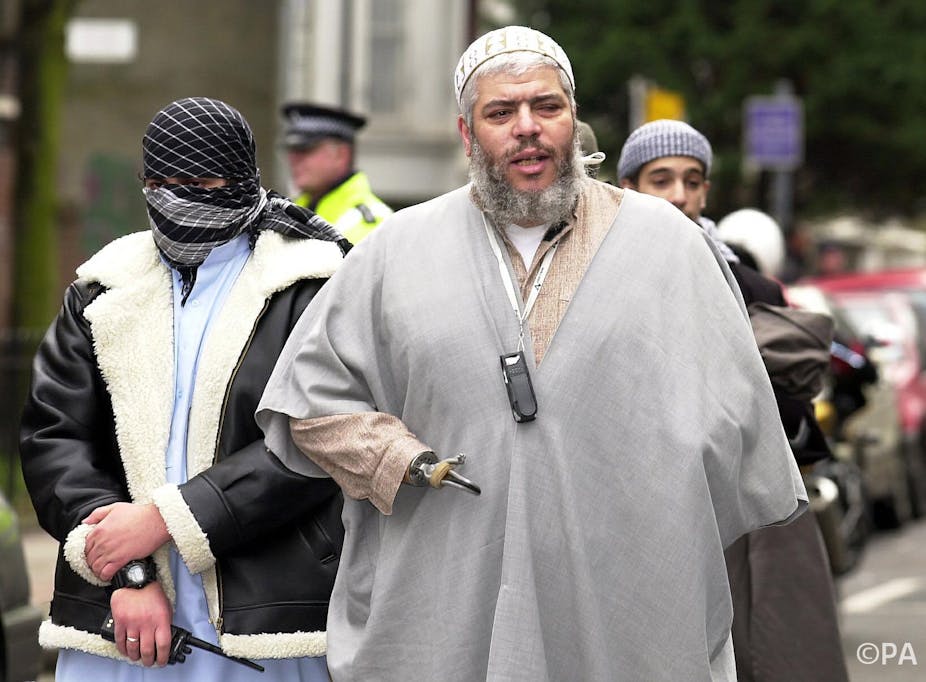In my long career as a BBC journalist there were many high points. Unfortunately some of the journalistic highs were tempered by some profound lows of personal enlightenment. Two years spent filming undercover at Finsbury Park mosque in the run-up to 9/11 vies for top spot on this count.
Back in 2000 I watched secretly filmed footage, utterly transfixed and sick to the stomach when it became clear teenage boys were being fed a diet of propaganda and jihadi videos in which beheadings were de rigueur. I simply could not imagine that happening in any other public institution in the UK and it was profoundly shocking.
This was a story that needed telling. But without objective, provable facts it was going to be difficult to move beyond the footage to a credible broadcast that didn’t simply paint an alarmist picture of what was going on at the mosque. I’m happy to admit that at first I didn’t exactly have a clear picture of what was going on.
I soon found there were many people frightened of being labelled racist for raising questions about “culturally sensitive practices” inside places of worship. This cultural relativism baffled me given the scale of the threat people like Finsbury Park preacher Abu Hamza obviously posed to the welfare of these young people. It was very clear he was a man of considerable influence who was putting young people on a pathway to murder.
And 15 years on, we seem barely closer to understanding what motivates young men to listen to people like Hamza. If we were, we would have been able to prevent Mohammed Emwazi, the man until recently known as “Jihadi John”, from travelling to the Middle East to become a public executioner for Islamic State.
Vulnerable generation
It is a well-worn sociological argument that people from minority ethnic backgrounds in search of a credible identity can often be fraught with inner conflict. Often the pursuit of hopes and dreams are compromised and the need for action to change frustrated lives can lead to a sense of disengagement from society.
Emotional conflicts always emerge for young people in the search for meaning and fulfilment. Many young Muslims wanted to find someone who could help resolve theirs. Their parents often believed they had been raised in a hostile environment. Racism, unemployment and cynicism about ever getting involved in a productive lifestyle in the UK meant they too were conflicted and sometimes unwilling to criticise signs of radicalisation in their youngsters.
The record shows that only a vocal minority gravitated towards extremism and violence. And they were those living marginalised lives in deprived circumstances – not that you would believe it given the scale and scope of the news coverage on Islam over the past 15 years.
Preachers of hate and intolerance like Hamza seek to exploit this ideas vacuum and fill it with a new jihadi mantra. What I heard and saw at Finsbury Park mosque was a romanticised view of solutions to complex problems. Simplicity is easier to sell than complexity. Theology can always trump rationalism if you are a true believer because then there is only one pathway to the truth.
Gone but not forgotten
The young men in Finsbury Park mosque were putty in the hands of a charismatic demagogue who preyed on vulnerability. Hamza set about offering the romanticism of jihad as a solution not only to their own personal problems but also to regional and global conflicts. He was able to play on the conflicting allegiances of mosque goers – particularly on issues such as the Israeli-Palestine conflict – to undermine those who chose to challenge him publicly.
It’s now clear that British security services failed to deal with the likes of Hamza, even though he was clearly in their sights from 1997. Their hands-off approach only gave him more time and space to foster enduring networks.
None of this can be offered as a definitive explanation as to why young men are leaving the UK to join Islamic State, but it’s a place to start.

As we digest the often conflicting reports coming in about Emwazi’s background and path to radicalisation, we need to recognise that the UK has changed. It has a complex multicultural society and ultimately we will have to live with the threat of terror at home induced by “foreign” wars.
Last month Hamza was sentenced to life imprisonment by a New York court for his contribution to radicalising young men and jihadi terror. But evidence is now emerging that Emwazi had links with the men who had planned to bomb London on July 21 2005 – these were men found to have fallen under Hamza’s influence.
It’s clear that Hamza’s hate preaching has had a lasting impact in London. He has been embroiled in legal battles for years and is now in prison, yet links continue to be found between him and the young men who have committed atrocities in the name of jihad even after his imprisonment. The networks he inspired will continue to be threats for the foreseeable future. The most important thing we can learn from all this is that civil society must be at the forefront of engagement because the security services cannot divert these young people with their methods alone.
The people who surrounded Hamza no longer occupy mosques, they operate in virtual worlds. That doesn’t make them less dangerous but it has demonstrated that community intervention can make a difference.
Finsbury Park mosque is now once again a thriving cultural and spiritual centre and uses its notoriety to show the world (it receives regular requests for media interviews) that extremism can be challenged.

